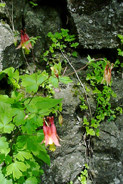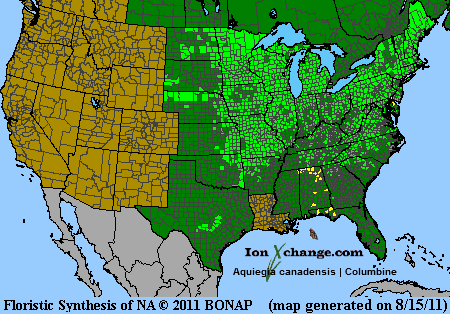 Loading... Please wait...
Loading... Please wait...- Home
- SEEDS
- SEED MIXES
- BUY PLANTS
- Info Request
-
Educational Videos
- Greenhouse Transplanting Demonstration
- Native Seed Cleaning demonstration at Ion Exchange Native Seed and Plant Nursery
- Attracting Butterflies
- Bidens - Bidens cernua Harvest Video
- Big Blue Stem Harvest
- Butterfly Milkweed Video
- Button Blazingstar - Liatris aspera Video
- Buttonbush - Cephalanthus occidentalis Video
- Canada Anemone - Anemone canadensis Harvest Video
- Cardinal Flower - Lobelia cardinalis Video
- Control Burn - Wildflower Field
- Cream Gentian - Gentiana flavida
- Culver's Root - Veronicastrum virginicum Video
- Cup Plant - Silphium perfoliatum Video
- Dormant Seeding | Planting
- Earthyman's Favorite Wildflowers Video
- Eco-Friendly Golf Course Seed Mix
- Floating Islands
- Fringed Loosestrife - Lysimachia ciliata Video
- Giant Yellow Hyssop - Agastache nepetoides Video
- Indiangrass - Sorghastrum nutans Video
- Iowa Prairie Partner Program
- Leadplant - Amorpha canescens (Potted) Video
- Meadow Blazingstar - Liatris ligulistylis
- Midland Shooting Stars - Dodecatheon meadii Video
- Native Plant Nursery Field Irrigation Experiment
- Nodding Onion - Allium cernuum Video
- Ohio spiderwort - Tradescantia ohiensis Video
- Old Man's Beard - Clematis virginiana blooms Video
- Oxeye Sunflower - Heliopsis helianthoides Video
- Prairie Spiderwort - Tradescantia bracteata
- Purple Coneflower - Echinacea purpurea Video
- Rain Garden or Water Garden Video
- Rattlesnake Master - Eryngium yuccifolium Video
- Riverbank Stabilization - Wetland Plants
- Rose Mallow - Hibiscus militaris Video
- Rosinweed - Silphium integrifolium Video
- Royal Catchfly - Silene regia
- Showy Tick Trefoil - Desmodium canadense Video
- Sneezeweed - Helenium autumnale Video
- Swamp Betony - Pedicularis lanceolata Video
- Swamp Milkweed - Asclepias incarnata Video
- Sweet Blackeyed Susan - Rudbeckia subtomentosa Video
- Tall Coreopsis - Coreopsis tripteris Video
- Urban Butterfly Garden
- Wild Bergamot - Monarda fistulosa Video
- Wild Geranium - Geranium maculatum Harvest
- Wild Goldenglow - Rudbeckia lanciniata Video
- Wild Petunia - Ruellia humilis Harvest Video
- Woodland Knotweed - Polygonum virginianum Video
- Yellow Coneflower - Ratibida pinnata Video
- Blog
- Resources
- Policies
Contact Us
Phone:
563-419-0837
or 563-535-7231
Email:
hbright@ionXchange.com
Browse Products
Add to Wish List
You Recently Viewed...
Our Newsletter
AQUILEGIA CANADENSIS | Columbine
Product Description
Columbine (Aquilegia Canadensis) - Drooping red flowers with 5 long, curved spurs; reaches 2 feet in height and prefers rocky woods and slopes. Found from Manitoba through Quebec and southward through the US. Distinctive compound leaves divided and sub-divided into three's. Most likely from the Latin aqua for "water" and leger for "to collect" because water can collect in the hollow spurs of the flower and canadensis meaning "of Canada". Tolerates most soil and sun conditions, near pine trees. Deer Resistent. Provides spring nectar for bees, butterflies and hummingbirds. Also known as Red Columbine or Little Lantern.
Ranunculaceae Family - "Columbine, Bells, Clucky, Honeysuckle, Jack-in-trouser, Meeting Houses, Rock Lily".
| Sun Exposure | Savanna, Prairie, Woodland |
| Soil Moisture | Mesic, Dry Mesic, Dry |
| Bloom Time | Spring, Summer April, May, June, July |
| Bloom Color | Red, Yellow |
| Max. Height | 2 Feet |
| Wetland Code | FACW |
| Germ Code | C(60) |
| Seeds Per Packet | 250 |
| Seeds Per Ounce | 38,000 |
Central Plains Native American men would rub the ground seeds into their palms as a love potion before shaking hands with a loved one. It was also reported to have made them more persuasive when speaking at councils. Very small amounts of the crushed seeds were taken internally to relieve headaches.
Some tribes boiled the entire plant and used the resulting liquid as a type of shampoo or hair wash. The seeds were also rubbed into the hair to control lice. The chewed root or a weak tea made from the root was used to relieve diarrhea and stomach troubles and as a diuretic. Some cultures on the west coast boiled the roots and ate them during times of little other food.
Medicinal Uses:
Antispasmodic, diaphoretic, parasiticide, resolvent, salve. The root is astringent and diuretic. It is chewed or made into a weak tea for the treatment of diarrhoea and stomach aches. The tea is used in the treatment of uterine bleeding. The boiled plant was used as a hair wash. The seed is anodyne and febrifuge. An infusion is used in the treatment of headaches and fevers.
Other Uses:
The seed is rubbed into the scalp to rid the hair of lice. The crushed seed is pleasantly aromatic and is used as a perfume. The fragrance persists for a long time.
Herbal Uses: Unknown
Edible Uses:
Raw Flowers: Sweet and delightful. Rich in nectar, they make a very attractive addition to mixed salads and can also be used as a thirst-quenching munch in the garden. Root: These reports possibly refer to the root being chewed for its medicinal virtues. Caution is advised, see notes above on toxicity.

Product Reviews
-
Prairie planting

Posted by Kim Edsen on 11th Apr 2017
Seeds arrived quickly and were packaged well. I appreciated the assistance I received in choosing the best varieties for my planting site. Looking forward to watching them grow!
-
Surprised

Posted by Unknown on 2nd Jul 2014
Great plants/plugs. Personal communication also. Would purchase again from Ion.











